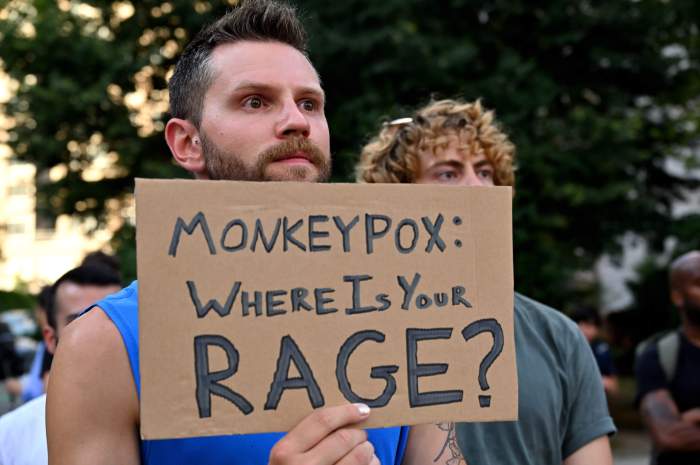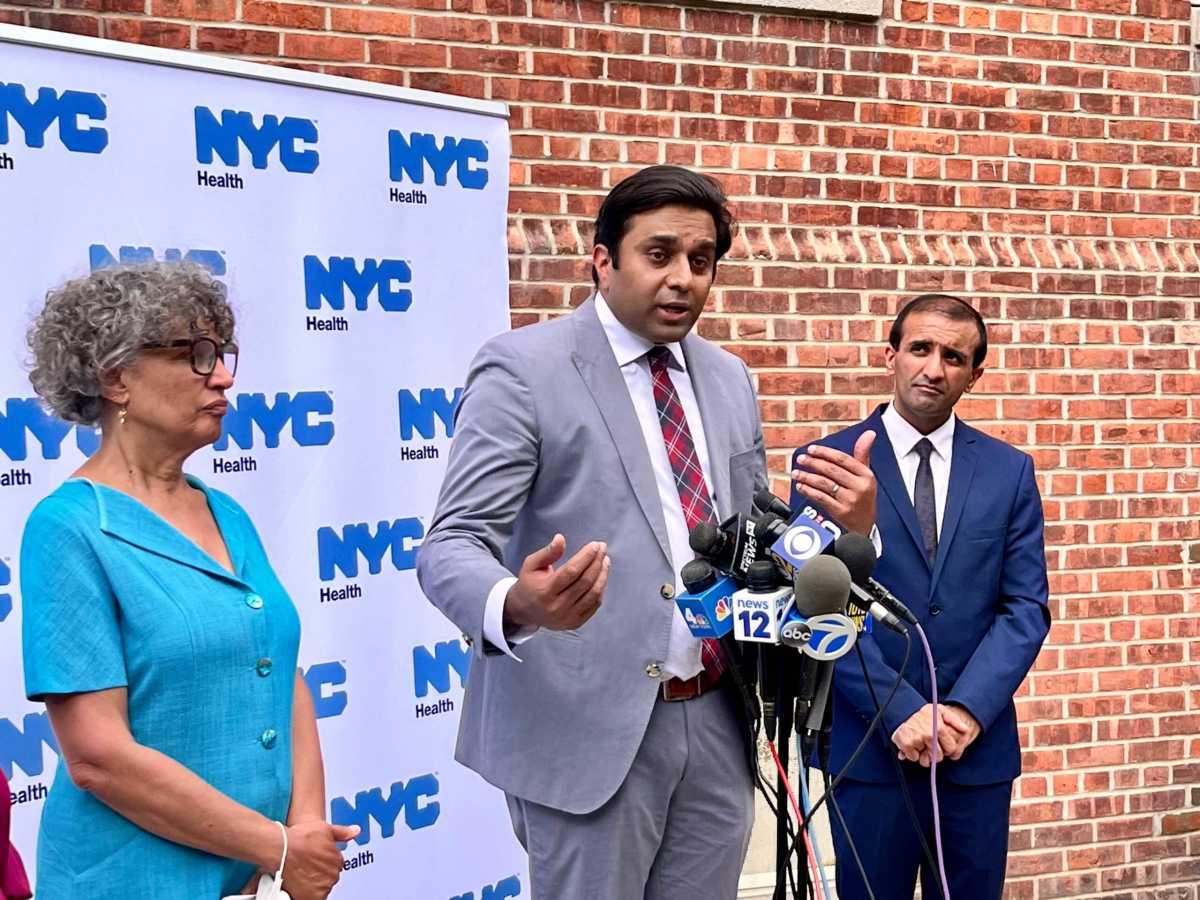Two years after an mpox outbreak swept through the city and infected thousands of New Yorkers — mostly men who have sex with men — city health officials are warning that cases are again on the rise in the five boroughs.
The New York City Department of Health and Mental Hygiene issued a health advisory alerting doctors about a “substantial increase” in cases since October of last year and calling on physicians to encourage those at risk of mpox to get fully vaccinated — including those who never completed the two-shot JYNNEOS vaccine series two years ago.
The city reported 256 cases between October and April, mostly among Black or Hispanic men who have sex with men between the ages of 25-44, according to the advisory. Notably, 73% of cases were seen among individuals who were either not vaccinated or only received one shot. The uptick coincides with an outbreak of a more severe strain of mpox in the Democratic Republic of the Congo, but there are no reported cases in the US.
New York City declared an end to the outbreak in February of last year when cases fell dramatically following a robust vaccination and awareness campaign. The city saw two to 20 cases per month in the city between January and September of last year.
“After the public health emergency ended, mpox didn’t go away,” Julian L. Watkins, assistant commissioner of the Bureau of Health Equity Capacity Building at the NYC Department of Health, told Gay City News. “There were monthly cases, and they slowly ticked up.”
The city has seen 42 cases in the last month and 191 since Jan. 1, according to the city’s most recent update on May 9. Watkins said no particular boroughs or neighborhoods have stood out in the case count so far.
The increase in cases does not appear to be driven by any particular reason, according to Watkins, who suggested that it could be a combination of unvaccinated out-of-towners visiting the city and an overall increase in social gatherings, especially in the aftermath of COVID.
Regardless of how we got here, though, officials are stressing the importance of getting vaccinated as soon as possible.
“The big message is that it’s not too late for that second dose,” Watkins said, referring to those who already received one jab of the vaccine.
Unlike the vaccines for COVID or the flu, which are typically administered annually, the mpox vaccine does not get re-administered after the full two-shot course. An individual who received one shot in 2022 or 2023 can still get a second shot now, and those who have received both doses do not need to get vaccinated again. People who are at risk of mpox are eligible to receive both shots.
Mpox has spread primarily through sex and intimate contact among social networks of gay men and other men who have sex with men, along with transgender people, according to the NYC Health Department, so those groups are high on the priority list for vaccination. Individuals with advanced HIV or are otherwise severely immunocompromised are also among those who should get vaccinated, officials said.
Furthermore, anyone who has been in close contact with someone who has mpox is at risk for infection. Watkins said those who live with someone who is in an at-risk group can also consider vaccination.
According to the Centers for Disease Control and Prevention, the second shot is administered four weeks after the first one. People are considered to have max protection two weeks after the second dose.
Individuals can receive the mpox vaccine at two dozen locations around the city, including in every borough, according to the NYC Vaccine Finder website, which is where people can find spots to get vaccinated. But Watkins cautioned that the mpox vaccine entered the commercial market on April 1, so it is not clear whether all shots will remain free for the foreseeable future.
According to the city’s mpox health advisory, which was distributed to providers, no-cost federal supplies will remain available until the early summer. Watkins said people should check with their provider if they are interested in getting vaccinated. Providers can order non-cost vaccines by emailing poxvax@health.nyc.gov, and the NYC Health Department expects to fulfill requests until early summer.
As cases started climbing in the 2022 outbreak, there were long lines for the vaccine but limited supply of doses — and the slow response by the federal government prompted activists to demand action from the Biden administration.

Soon enough, the vaccine supply increased, but the city also dealt with its own issues, including technological glitches in the online vaccination sign-up system as well as racial disparities in the vaccine rollout. In an example of the disproportionate distribution of doses, at one point in August of 2022, Black New Yorkers had accounted for 12% of vaccine doses but 31% of the population eligible to be vaccinated.
The response to that outbreak included stationing mobile vaccination vans next to nightclubs and sex parties in the city. There were also flyers posted in areas known to the LGBTQ community, including in places outside of the city, such as Fire Island.
Last year, as cases remained low, the city and state launched a joint mpox awareness campaign with posters about mpox online and in locations such as stores and medical offices. For now, at least, health officials don’t expect to mount the same kind of awareness campaign as in 2022.
“We’re not at that level yet,” Watkins said. “Right now, the message is that we want folks to think about prevention and we want to raise awareness, but we don’t want to cause alarm. It’s still something to consider: As temperatures get warmer, as folks are more interactive, [it is important to] prepare and think about mpox prevention as part of our routine sexual health practices.”





































